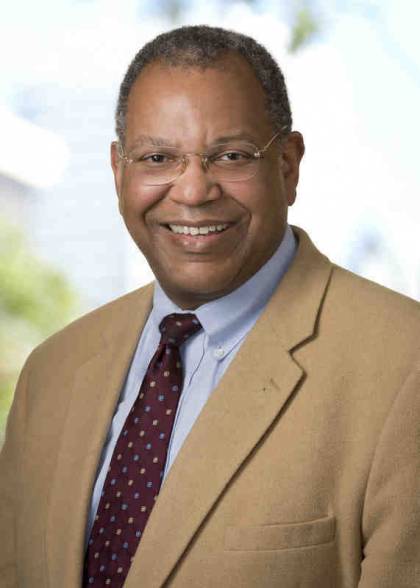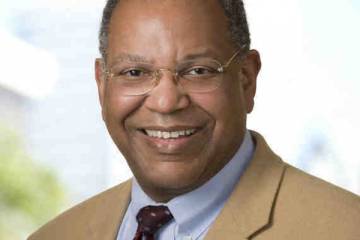Bloomberg Distinguished Professor Otis Brawley, who has appointments in the schools of Medicine and Public Health, has been named by STAT as one of the country's most influential science thought leaders.
STAT is a media company, launched in 2015, that focuses on coverage of health, medicine, and the life sciences.

Image caption: Otis Brawley
The inaugural STATUS List—described as "the definitive accounting of leaders in the life sciences"—is composed of 46 individuals in the fields of academia, business, government, medicine, and nonprofit. Selected by the company's editors and an expert panel of judges, they are a mix of both well-known and quiet influencers.
Among the high-profile selections are Francis Collins, acting science adviser to President Joe Biden; Anthony Fauci, director of the National Institute of Allergy and Infectious Diseases and chief medical adviser to Biden; Freeman Hrabowski III, president of UMBC; Admiral Rachel L. Levine, assistant secretary for health in the Department of Health and Human Services; Vivek Murthy, U.S. surgeon general; and Anne Wojcicki, co-founder and CEO of 23andMe.
Brawley, a professor of oncology and epidemiology at Johns Hopkins, was recognized for his work in academia. He leads a broad interdisciplinary research effort of cancer health disparities at the Bloomberg School of Public Health and Kimmel Cancer Center, working to close racial, economic, and social disparities in the prevention, detection, and treatment of cancer in the United States and worldwide. He also directs community outreach programs for underserved populations throughout Maryland as the Kimmel Cancer Center's associate director for community outreach and engagement.
He previously was chief medical officer and executive vice president of the American Cancer Society, where he worked to reduce overscreening for cancer and other diseases in U.S. hospitals. He is the author of How We Do Harm, in which he argues that low-income Americans get too little health care and rich Americans too much, leading to "dismal health outcomes on both ends of the socioeconomic spectrum."
Posted in News+Info








